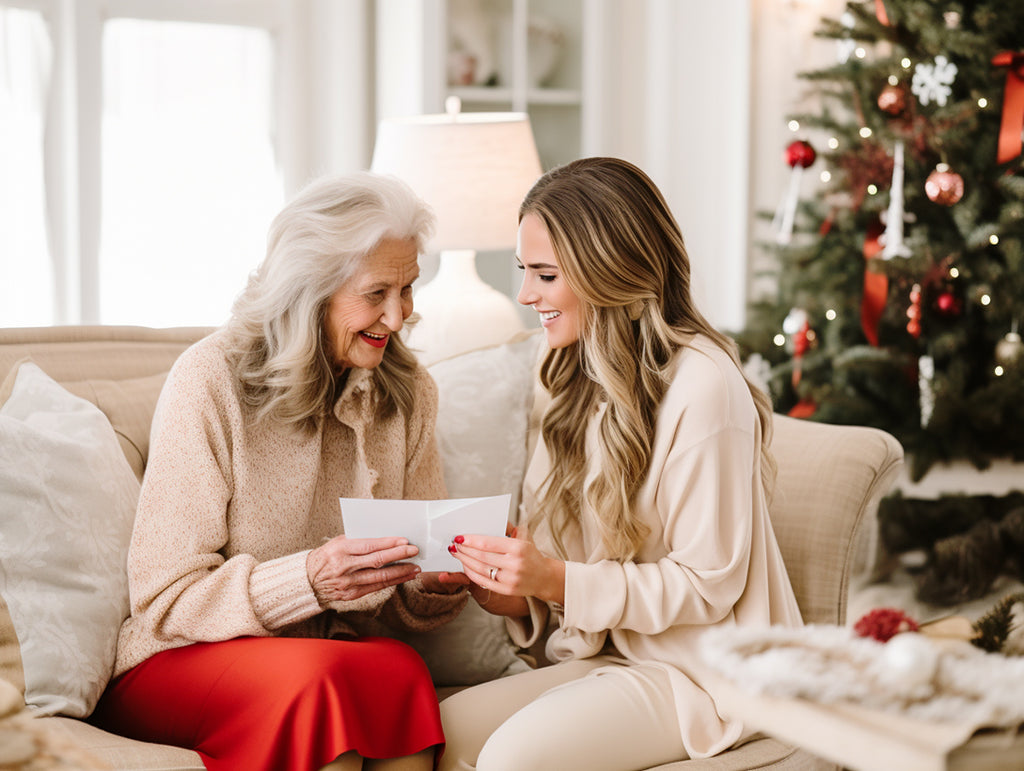The holiday season is upon us, and it's time to start thinking about your Christmas card list.
Sending Christmas cards is a delightful tradition that helps us maintain connections and spread cheer among our loved ones.

The true challenge lies in figuring out who exactly should be on your list, as you surely want your warm wishes to reach all the important people in your life.
Everyone's relationships and social circles differ, but there are some general categories to consider when determining your Christmas card recipients.
From family members and close friends to professional contacts and even digital acquaintances, each group merits consideration.
Key Takeaways
- Crafting your Christmas card list involves considering various important relationships
- Your list can include family, friends, and professional contacts
Christmas Cards Tradition
Who Started It
Sending Christmas cards is a delightful tradition. It all started in 1843, when an Englishman named Sir Henry Cole and his friend, the artist John Horsley, designed the first Christmas card. They wanted a simple way to wish people a "Merry Christmas" without writing long letters.
Over time, this tradition caught on and spread around the globe.
Why We Still Do It
You may wonder why, in our digital age, we still send physical cards. It's because Christmas cards bring a sense of warmth and personal connection that digital messages sometimes lack.

Receiving a card in the mail can still give you that fuzzy feeling, knowing someone took the time to write and send it.
Christmas cards help us strengthen our bonds with family and friends. It's a way of reminding our loved ones that we're thinking about them during the festive season.
Senders often get creative with their cards, adding family photos and customizing the design, making the whole process even more engaging and fun.
So, when December rolls around, remember that sending good old-fashioned Christmas cards is a time-honored tradition that still brings joy to many.
Enjoy selecting beautiful cards and penning heartfelt messages to your loved ones - it's a wonderful way to spread holiday cheer!

Family & Relatives
Immediate Family
Sending Christmas cards to your immediate family is a no-brainer. Of course, you'll want to include your spouse and children in the festive cheer!
Remember to add personalized messages to each card, making them feel extra special and loved during the holiday season.
Extended Family
For extended family members, the list can be as wide as you prefer – aunts, uncles, cousins, and even second cousins. A great way to stay connected with loved ones during the Christmas season is by sending warm cards to each family.
Be sure to shorten distant relatives' lists to those with whom you have the closest connection. By keeping your card list manageable, you can focus on the joy of the season without getting overwhelmed.
Remember, Christmas cards are perfect for reconnecting and spreading holiday cheer among both immediate and extended family members. Even with a busy schedule, you can make the time to put a smile on their faces by sending a thoughtful card in the mail.

Friends & Acquaintances
Close Friends
When it comes to Christmas cards, your close friends deserve a special place on your list. You know, the ones who've been there for you through thick and thin.
Send them a heartfelt message to let them know how much they mean to you. A personal touch, like a hand-written note, adds warmth to your cards.

Social Circle
For your wider social circle, think of those you've connected with during the year. Neighbors, PTA members, and the friendly barista who makes your morning coffee.
A simple, elegant card can spread cheer and strengthen your ties. Customize with your family's picture and a sweet note to give it a personal feel.
Remember, Christmas cards are a small but meaningful gesture. Enjoy spreading the love and warmth this holiday season!
Professional Contacts
Work Colleagues
Sending Christmas cards to your work colleagues is a simple gesture that goes a long way in fostering camaraderie. It's a time when you can let your guard down and just enjoy the season together.
So go ahead, make a list of your work buddies, and let them feel the special warmth of Christmas.
Don't forget about the remote workers as well! They might be just a call away, but a holiday greeting can bring a smile to their faces and make them feel a part of the team.

Business Associates
Strengthen your professional relationships by sending Christmas cards to your business associates. A card with good wishes not only makes their holiday season more enjoyable but also strengthens your ties.
This act of kindness will be remembered and can make your future collaborations smoother.
When you're gathering names, remember to include clients, suppliers, and partners. You never know who might appreciate the gesture, and it's an easy way to add a personal touch to your business relationships.
Keep your Christmas cards light, jolly, and suited for your recipients. And remember, it's the thought that counts.
So, give it a personal touch by adding a handwritten note on the cards. Your efforts will surely be valued, and you'll have taken care of the professional contacts in your Christmas card list!

Who not to send to
Avoiding Uncomfortable Situations
Sometimes, it's best to avoid sending Christmas cards to people who may find it inappropriate or awkward. This can include ex-partners, estranged family members, or colleagues with whom you have a tense relationship.
It's generally better to err on the side of caution and avoid unintentionally causing discomfort.
In the same vein, if a friend or relative has experienced a recent tragedy or loss, sending a lighthearted Christmas card might not be the best idea.
In these situations, reach out with a heartfelt message of support instead.

Privacy Considerations
Respecting people's personal boundaries is essential. When sending Christmas cards, think about whether the recipient might value their privacy more than a holiday greeting.
If someone has explicitly asked not to receive mail or hasn't shared their address, it's important to respect their wishes.
Also, consider how well you know the recipient and the relationship's level of closeness. Sending cards to casual acquaintances or people you've only met once might feel intrusive.
Think about your connection before adding them to your Christmas card list.
By keeping these guidelines in mind, you can send thoughtful Christmas cards that bring joy and warmth without creating any unintended awkwardness or privacy concerns.

Frequently Asked Questions
Who should be on my Christmas card list?
Your Christmas card list can include family members, friends, and anyone who holds a special place in your heart. Think about the relationships you've nurtured throughout the year and the people who make you smile.
Is it appropriate to send cards to coworkers?
Absolutely! Sending Christmas cards to coworkers is a thoughtful way to spread holiday cheer. Just be mindful of workplace etiquette and avoid offensive or controversial messages.
Should I send Christmas cards to neighbors and acquaintances?
Sending cards to neighbors and acquaintances is a lovely gesture to show your appreciation for their presence in your life. It's a simple way to spread warmth and foster community spirit!
Is it common to send cards to service providers?
Yes, sending Christmas cards to service providers, such as your hairstylist or house cleaner, is quite common. It's a great opportunity to express your gratitude and appreciation for their hard work throughout the year.

Do I need to mail cards to close family members?
While it's not a strict requirement, mailing cards to close family members is a time-honored tradition. It's a tangible memento they'll cherish, especially if they live far away and can't make it to your festive celebrations.
Is it necessary to send cards to people I've already wished in person?
If you've already shared holiday wishes in person, sending a card isn't strictly necessary, but it can serve as a thoughtful reminder of your shared moment. Consider the depth of your relationship and let that guide your decision.
Affiliate disclosure: We only endorse things we’ve personally curated and have bought or would buy ourselves. If you make a purchase using our referral links, we may receive a commission. However, there’s no extra cost to you.
